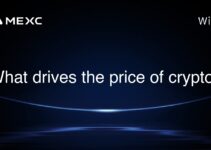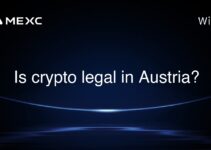As of 2025, Monaco does not impose taxes on cryptocurrency gains, which includes trading, capital gains, or income derived from crypto activities. This tax policy makes Monaco one of the most favorable environments for cryptocurrency investors and users globally.
Significance of Tax Regulations on Cryptocurrency in Monaco
The tax status of cryptocurrencies in any jurisdiction is a critical factor for investors, traders, and everyday users. In Monaco, the absence of cryptocurrency taxes can significantly influence investment strategies and decisions. This tax advantage not only attracts wealthy individuals looking to optimize their tax exposure but also fosters a conducive environment for crypto-related businesses and startups.
Understanding Monaco’s tax policy is essential for anyone engaged in the crypto space, whether they are considering relocation for tax purposes, setting up a crypto business, or planning to trade large volumes. The principality’s stance on crypto taxation directly impacts the financial planning and legal compliance of these activities.
Real-World Examples and Updated Insights for 2025
In recent years, Monaco has seen a surge in crypto-focused businesses and high-net-worth individuals moving to the principality. For instance, several blockchain startups have established their headquarters in Monaco, leveraging the tax benefits and the prestigious image of the locale. Additionally, Monaco hosts annual international conferences that attract global leaders in blockchain and cryptocurrency, further solidifying its status as a crypto-friendly hub.
One notable example from 2025 is the establishment of the Monaco Blockchain Association, which collaborates with the government to foster a thriving crypto ecosystem. This association has been pivotal in attracting new businesses through educational programs, regulatory support, and networking opportunities.
Furthermore, Monaco’s luxury real estate sector has adapted to the increasing demand from the crypto elite by accepting cryptocurrencies as a payment method. This adaptation not only reflects the integration of crypto into mainstream business operations but also showcases the practical application of cryptocurrencies in large-scale transactions.
Data and Statistics Relevant to Monaco’s Crypto Environment
While specific statistics on the volume of crypto transactions or the number of crypto businesses in Monaco are not publicly disclosed, the principality’s economic indicators reflect a robust influx of capital and businesses since the crypto boom. Monaco’s real estate market, for instance, has reported a significant increase in transactions involving cryptocurrencies, with estimates suggesting that crypto transactions may account for up to 20% of all luxury property sales as of 2025.
Additionally, the Monaco Blockchain Association reports a 50% increase in membership since its inception, indicating a growing interest and investment in the crypto sector within the region. This statistic is a testament to the thriving crypto ecosystem in Monaco and the positive impact of its tax policies.
Conclusion and Key Takeaways
In conclusion, Monaco’s policy of not taxing cryptocurrency gains continues to position the principality as an attractive destination for crypto investors and businesses. This tax advantage not only enhances Monaco’s appeal as a financial hub but also supports the principality’s economic growth by attracting high-net-worth individuals and innovative tech companies.
Key takeaways include the importance of understanding local tax laws in financial planning, the role of favorable tax regimes in attracting business, and the practical implications of such policies, as evidenced by the integration of crypto payments in luxury real estate and the growth of the Monaco Blockchain Association. For anyone involved in cryptocurrency, whether investing, trading, or conducting business, Monaco presents a compelling case study of how tax policies can influence the development of a crypto-friendly ecosystem.
Investors and businesses in the crypto space should consider Monaco not only for its tax benefits but also for its growing role as a global leader in blockchain innovation and luxury services adapted to the digital age.
Join MEXC and Start Trading Today!



